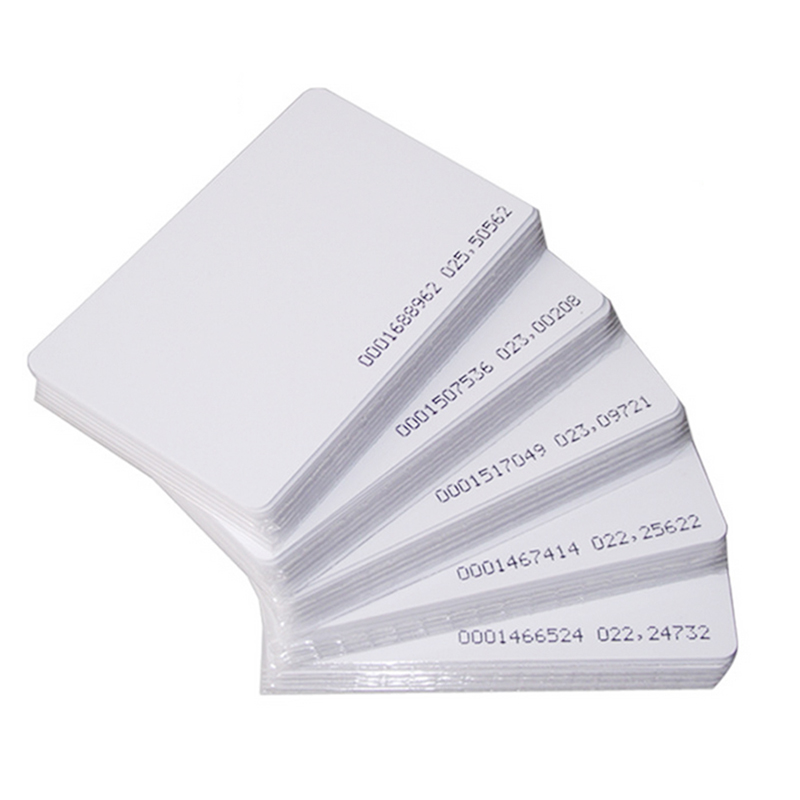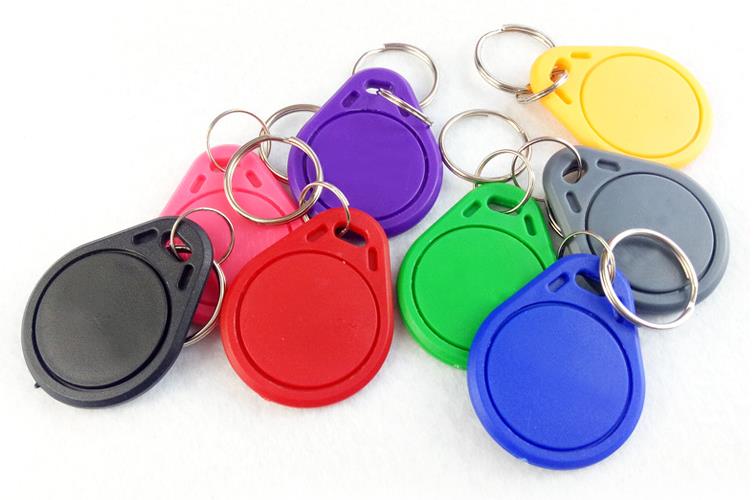The Future of RFID in the U.S- Trends in 2024 and Beyond

The Future of RFID in the U.S.: Trends in 2024 and Beyond
Radio Frequency Identification (RFID) has come a long way since its inception, and as we approach 2024, the technology is evolving rapidly, bringing transformative changes across various industries. RFID is not only crucial for supply chain management but is also being integrated with other cutting-edge technologies like the Internet of Things (IoT), smart manufacturing, and sustainability initiatives. In this article, we explore the future of RFID in the U.S., focusing on emerging trends and how they will shape industries in the years to come.
Table of Contents
- Introduction
- RFID and the Internet of Things (IoT): A Powerful Partnership
- RFID in Smart Manufacturing: A Game Changer for Industry 4.0
- RFID and Sustainability: Driving Green Initiatives
- RFID’s Role in the Consumer Experience: Revolutionizing Retail and Beyond
- Looking Ahead: RFID in 2024 and Beyond
1. RFID and the Internet of Things (IoT): A Powerful Partnership
One of the most significant trends driving the future of RFID technology is its integration with the Internet of Things (IoT). The IoT ecosystem comprises connected devices that communicate and exchange data to create smarter systems. RFID is a key enabler in this ecosystem, as it provides a seamless way to track and identify assets, inventory, and even people in real-time.
In the coming years, businesses will increasingly use RFID tags to collect data from a variety of physical objects, which can then be analyzed to gain deeper insights into operations. For example, RFID tags attached to inventory in warehouses can send real-time data about stock levels, expiration dates, or the condition of goods. Combined with IoT sensors and AI-driven analytics, companies will be able to automate inventory management, reduce waste, and improve supply chain efficiency.
The IoT-RFID fusion is expected to play a pivotal role in sectors like retail, healthcare, and logistics. In retail, RFID-enabled IoT systems will allow stores to provide a more personalized shopping experience by tracking customer behavior and inventory movements. In healthcare, RFID combined with IoT will enhance patient care by tracking medical equipment and pharmaceuticals, preventing errors, and improving overall hospital operations.
2. RFID in Smart Manufacturing: A Game Changer for Industry 4.0
As manufacturers embrace Industry 4.0 principles, RFID is becoming an indispensable part of the smart manufacturing ecosystem. Smart factories utilize advanced technologies like robotics, AI, and machine learning to create more efficient, flexible, and responsive production lines. RFID tags will serve as the backbone of many smart manufacturing systems, providing real-time data on product components, equipment status, and supply chain activities.
In 2024 and beyond, manufacturers will increasingly deploy RFID to automate production workflows. For example, RFID tags on products and raw materials can provide real-time visibility into production processes, ensuring that inventory is always available when needed and reducing the risk of production delays. Automated assembly lines can also use RFID to ensure that the right parts are available at the right time, minimizing human error and reducing downtime.
The integration of RFID with robotics and AI will also improve predictive maintenance in manufacturing plants. RFID sensors embedded in machinery can monitor equipment health and trigger maintenance alerts before a failure occurs, thereby reducing unplanned downtime and improving overall efficiency. The combination of RFID and smart technologies will enable manufacturers to operate more agilely, optimize operations, and meet customer demands faster.
3. RFID and Sustainability: Driving Green Initiatives
Sustainability is becoming a critical focus for businesses, governments, and consumers alike. In 2024, RFID technology is poised to play an increasingly important role in sustainability efforts across various industries, especially in supply chains. RFID enables companies to track the lifecycle of products, from production and transportation to recycling and disposal. This visibility allows for more sustainable practices such as reducing waste, improving recycling rates, and optimizing energy consumption.
One of the key applications of RFID in sustainability is in the management of product end-of-life cycles. RFID tags can help companies trace the components of products to determine if they can be recycled or repurposed. For instance, manufacturers of electronic goods can use RFID tags to provide detailed information about the materials used in their products, helping recycling companies sort and process them more efficiently.
In the apparel industry, RFID tags can help brands track the lifecycle of clothing, from raw materials to production, sale, and eventual disposal. By knowing where garments are at each stage, companies can reduce the environmental impact of waste, overproduction, and shipping. Additionally, RFID-based systems can reduce the need for paper-based documentation, further cutting down on waste and contributing to greener practices.
RFID also supports sustainable logistics by improving the efficiency of supply chain operations. With better tracking and visibility of inventory, companies can reduce the carbon footprint of shipping by optimizing routes and avoiding overstocking. RFID’s ability to streamline warehouse operations also helps minimize energy consumption, making it a valuable tool in the move toward more eco-friendly business practices.
4. RFID’s Role in the Consumer Experience: Revolutionizing Retail and Beyond
In 2024, RFID technology will continue to shape the consumer experience, particularly in retail. As online and offline shopping converge, RFID will enhance how consumers interact with products in physical stores. One example is the growing use of RFID-enabled smart shelves that can track inventory levels in real time. This allows retailers to ensure products are always in stock and available, improving customer satisfaction.
Moreover, RFID will also facilitate the implementation of frictionless shopping experiences. Consumers will be able to simply walk out of stores with items without the need to wait in checkout lines. As RFID tags communicate with sensors at exit points, transactions will be processed automatically, eliminating the need for traditional checkout processes.
Another exciting development is the rise of RFID-powered loyalty programs. Retailers will be able to use RFID to track consumer purchases, providing tailored recommendations, special discounts, or personalized marketing offers based on shopping habits. This level of personalization will enhance customer engagement and brand loyalty, allowing retailers to create more meaningful interactions with their customers.
5. Looking Ahead: RFID in 2024 and Beyond
The future of RFID in the U.S. looks bright as industries adopt the technology to meet the demands of a rapidly evolving digital landscape. The integration of RFID with IoT, its role in smart manufacturing, and its contribution to sustainability initiatives will drive the next phase of innovation. By improving operational efficiency, enhancing the consumer experience, and supporting green initiatives, RFID technology will be at the forefront of the digital transformation across many sectors.
As we move further into 2024 and beyond, businesses that adopt RFID technology will gain a competitive edge, creating new opportunities for growth and efficiency. The ongoing evolution of RFID promises to deliver even more innovative solutions, making it a cornerstone of technological advancement for years to come.
Related Products
Here are some relevant facts and statistics to strengthen your claims and provide a clearer picture of the current and future state of RFID technology:
1. RFID and the Internet of Things (IoT): A Powerful Partnership
-
IoT Market Growth: The global IoT market is expected to grow from $384.5 billion in 2022 to $1.85 trillion by 2030, with RFID playing a central role in asset tracking and data collection in IoT networks. (Source: Grand View Research)
-
RFID and IoT in Logistics: According to a 2023 report by Zebra Technologies, 95% of logistics professionals believe that real-time data from IoT devices like RFID will improve visibility and supply chain operations within the next 5 years.
2. RFID in Smart Manufacturing: A Game Changer for Industry 4.0
-
Smart Manufacturing Adoption: A 2023 McKinsey report indicates that 70% of manufacturers are planning to implement Industry 4.0 technologies like RFID within the next three years, particularly to enhance automation, track parts, and optimize supply chains.
-
Predictive Maintenance Impact: In manufacturing, RFID sensors are helping businesses reduce unplanned downtime by up to 30%. Companies that have implemented RFID in predictive maintenance see an average 12% improvement in operational efficiency. (Source: PwC)
3. RFID and Sustainability: Driving Green Initiatives
-
RFID and Waste Reduction: A study by GS1 US found that RFID technology can reduce waste by up to 20% in retail and manufacturing operations by improving inventory accuracy and reducing overstocking or understocking.
-
Sustainability in Retail: In the fashion industry, RFID tags help retailers track the lifecycle of garments and ensure more efficient recycling. According to Fashion for Good, implementing RFID in the apparel industry could reduce global textile waste by over 30% within the next decade.
-
Carbon Emissions and RFID: A 2022 study by the University of Arkansas estimated that RFID technology could help reduce the carbon footprint of supply chains by approximately 2-3% by improving asset tracking, minimizing transportation waste, and reducing overproduction.
4. RFID’s Role in the Consumer Experience: Revolutionizing Retail and Beyond
-
Retail Adoption of RFID: According to Zebra Technologies’ 2023 Retail Vision Study, 82% of retail executives said they plan to increase investment in RFID technology to improve stock accuracy and enhance the customer shopping experience.
-
Smart Shelves and Inventory Management: A 2023 report from ResearchAndMarkets revealed that the market for RFID-based smart shelves in retail is expected to grow at a CAGR of 13.5% from 2023 to 2028, driven by the desire for better inventory management and personalized shopping experiences.
-
Frictionless Shopping: The global market for RFID-enabled frictionless checkout systems is expected to exceed $15 billion by 2027, as more retailers seek to streamline the checkout process and improve customer satisfaction. (Source: MarketsandMarkets)
5. RFID in Smart Manufacturing and Sustainability
-
Sustainability Goals: In 2021, 50% of companies in the apparel industry reported using RFID as part of their sustainability strategy to enhance circularity in their supply chains. RFID helps in tracking garments throughout their lifecycle to ensure recycling and repurposing. (Source: RFID Journal)
-
RFID and Waste Reduction: The U.S. Environmental Protection Agency (EPA) estimates that RFID-enabled supply chains can help reduce supply chain waste by up to 50% in certain industries, by improving product traceability, reducing product loss, and enhancing recycling efforts.
6. Looking Ahead: RFID in 2024 and Beyond
-
Global RFID Market Forecast: The global RFID market size is projected to reach $48.77 billion by 2027, growing at a CAGR of 14.4% from 2020 to 2027. This growth is largely attributed to the widespread adoption of RFID in industries such as retail, healthcare, logistics, and manufacturing. (Source: Fortune Business Insights)
-
Increased Adoption Across Industries: According to a 2023 report by Allied Market Research, RFID technology adoption in healthcare is expected to grow by 12.5% annually, driven by its role in improving patient safety, tracking medical supplies, and reducing fraud.
Additional Insights:
-
RFID Tagging in Retail: In the retail sector, RFID adoption has led to a 10-20% increase in inventory accuracy and a 20-30% reduction in out-of-stock incidents, according to Zebra Technologies.
-
RFID and E-commerce: A 2022 survey by Avery Dennison revealed that 67% of online retailers plan to adopt RFID in the next three years to enhance product tracking and ensure faster, more accurate fulfillment.


